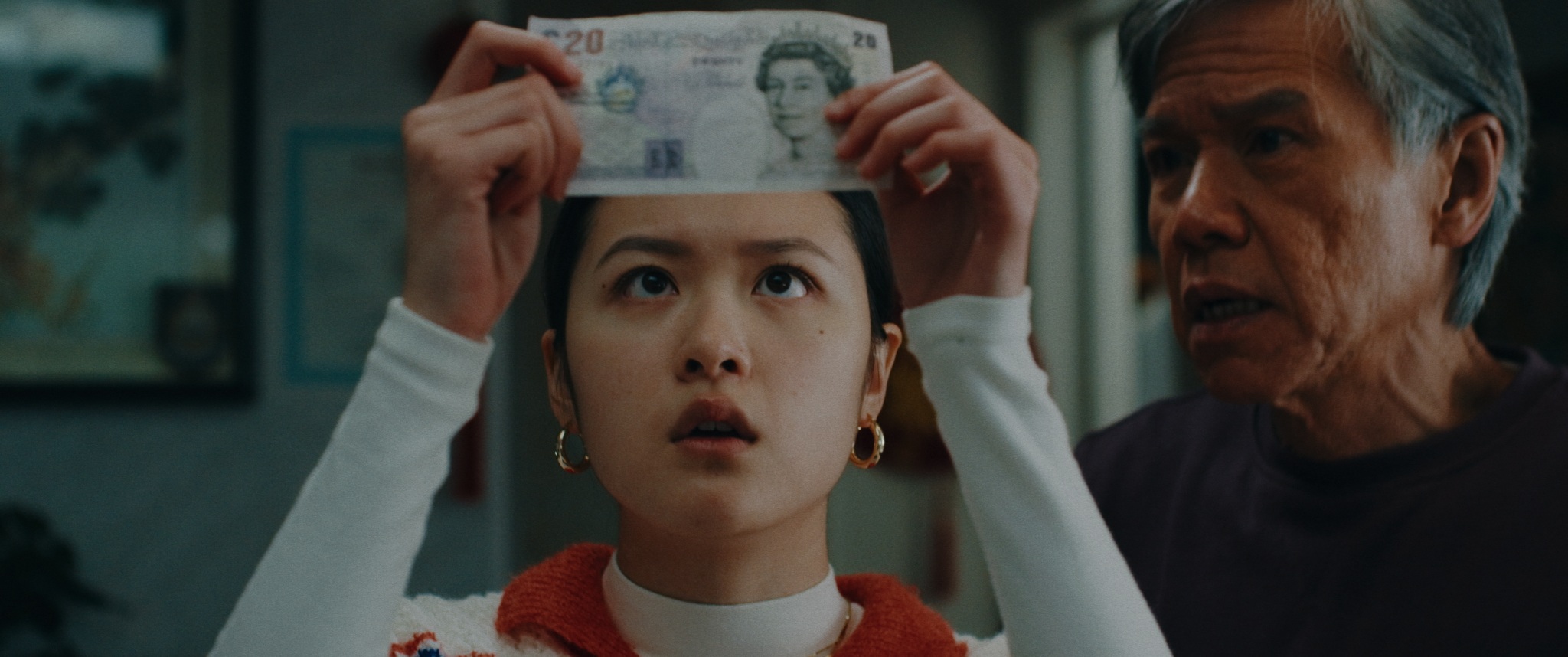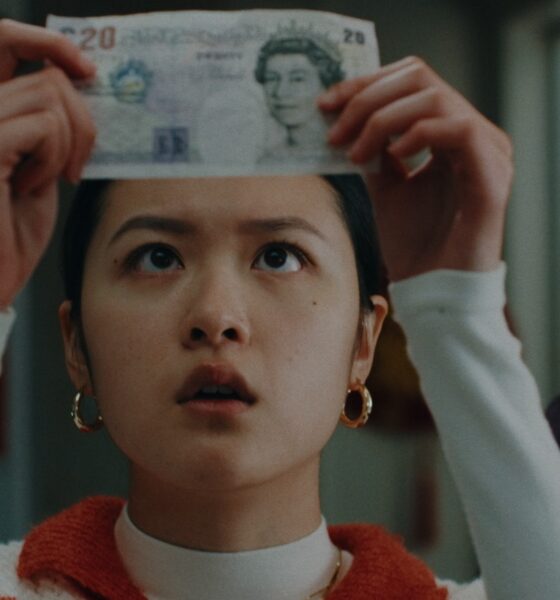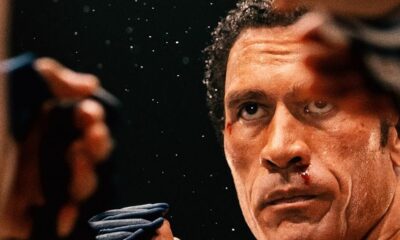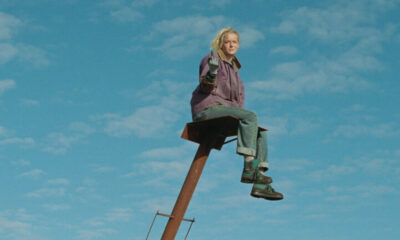

Featured Review
London Film Festival 2025 – High Wire ★★★★
Released: TBC (London Film Festival)
Director: Calif Chong
Starring: Isabella Wei, Ka-Wah Lam, Elizabeth Tan
We are in 2025, and yet there are not many films that are considered British-Chinese. The most notable such feature is arguably Ping Pong by Po-Chih Leong, filmed nearly 40 years ago and was the first film to be filmed in London’s Chinatown. Yet, there have been a lack of films since then that have truly captured not only the life of a British-born Chinese person or provided a relatable portrayal of a Chinese immigrant in the UK.
This lack of representation extends from the screen to the industry, as it highlights the lack of opportunities to promote British-Chinese features and British-Asian cinema in general, which prevents an insight into an underrepresented part of British society. But Hong Kong-born, UK-based filmmaker Calif Chong aims to change that with her debut directorial feature, High Wire.
The first scene of High Wire captures multiple thematic elements that will strike to the heart of both British-born Chinese people and Chinese immigrants. Teenager and roller skating enthusiast Au Go-Wing (Isabella Wei) is manning the counter of a dingy Chinese takeaway, dodging prank calls and dealing with rude or rowdy customers. Meanwhile, her Chinese immigrant dad Au San-ding (Ka-Wah Lam), yells from the back in Cantonese. With a desire to do anything else but work (for free) on a Friday night, Go-Wing is trapped, leading her to yell “I’m sick of this bloody village”, and rightly so – as the place she calls home feels toxic.
From the outset, High Wire‘s narrative incorporates a precarious balance between the Au family’s British and Chinese identities. Through a flashback video of Go-Wing’s late mother Ling (Elizabeth Tan) winning a figure skating championship medal, the commentator heralds her from North Yorkshire, prompting her to add that she is from Hong Kong in her acceptance speech. This video speech is cut short, as Go-Wing finds herself having to educate others on her Chinese identity, including her name (pronounced similar to ‘going’), only for her to internalise it to avoid being mocked by her peers.
This reluctance to express her Chinese identity also stems from embarrassment of her circumstances. As an only child, she speaks Cantonese with her father and her life is dedicated to him and the family takeaway. She balances her acting as translator, assistant and counter girl with her law studies, but San-Ding seems to forget Go-Wing is a teenager – a British one, at that. With this comes the need to socialise, hang out with friends and more importantly, find a life away from the family.
But with this youth comes the still-sensitive theme of internalised racism and xenophobia. Go-Wing wants to escape the village and is still treated like an outsider, especially by other teenagers who merely see her as a working-class ‘takeaway girl’ and a foreigner. A rare display of her defending her identity and standing up against the ignorant delivers a much-needed moment of empowerment, only to be countered with a shocking scene that is sure to resonate with many British-Chinese people.
In her debut directorial feature, Hong Kong-born, UK-based filmmaker Chong integrates another side to British-Chinese identity by highlighting the immigrant experience. Following post-WWII migration, many Hong Kong immigrants resorted to opening Chinese takeaways due to lack of education and language skills.
With this ‘sacrifice’ of moving to another country comes a desire for their children to succeed, so second-generation British-Chinese are encouraged to secure professions such as law, medicine and technology. As a result, creative subjects such as arts or sport are frowned upon. This judgementalism is displayed by Auntie Lee (Michelle Wen Lee), a friend of Au San-ding, who criticises Go-Wing’s late mother for being an ice skater. This attitude causes unspoken friction with her son, lawyer Eddie (co-screenwriter Jackie Lam), as his role as the dutiful son underlines the theme of filial piety but exacerbates his own identity crisis.
But this immigrant experience is not confined to the Au family, as a visiting circus group provides a different perspective as their artistic and death-defying acts open Go-Wing’s eyes to an outlet for personal expression and creativity, encouraging her to pursue a dream of skating. While San-Ding keeps saying to his daughter that it’s best to “keep feet on the ground”, it’s clear that it is only a matter of time before they start dragging against tradition and expectations.
Furthermore, the troupe gives Go-Wing’s first exposure to multiculturalism, as the troupe comprises people from different backgrounds but consider each other as family. Ranging from high wire artist Hendrick (Jose Palma) to stunt motorcyclist Sean (Nino Winter), their personal experiences of being treated differently and chasing their dreams comfort Go-Wing and offers her a view of a world that exists outside of the town of Askrigg – a confined environment emphasised by Chong’s direction, where diversity is practically non-existent compared to a big city, through shots of rural countryside and using restricted shots of characters.
It is therefore fitting that the teen sets her sights high by daring to do a new act that incorporates the high wire with her skating skills. Though the execution of some of these scenes are slightly off-kilter, especially when Go-Wing finally takes to the wire, there is an ambition there that signifies her ‘go big or go home’ mentality and an unspoken need to prove herself not just to herself, but her dad and the people that see her as nothing more than the ‘Chinese takeaway girl’.
As Go-Wing, Hong Kong actress Isabella Wei is a find – a young actress who not only can speak English and Cantonese fluently but speaks enough of an accent to heighten the authenticity of the surroundings. She combines heart and confliction in her performance to portray a young woman stuck between what she knows and what she wants.
There is a danger that Ka-Wah Lam’s performance of Au San-Ding comes across as a typical immigrant father, who wants Go-Wing to focus on being successful and loyal to the shop. However, his character’s quiet stubbornness emphasises his dependency on his bilingual daughter, as well as his fear to connect with the world outside of the shop. Yet his struggles to hide a tragic secret brings layers to a character that may have been easily dismissed but underlines the tragedy of the immigrant experience.
Chong and Lam’s screenplay is buoyed by the diverse range of supporting characters, who tap into different facets of Go Wing’s personality. These extend from the circus troupe to Lam’s Eddie and her best friend Melissa (Kelsey Cooke), an upper-class girl who seems oblivious to the microaggression affecting Go-Wing until she is forced to confront her own behaviour. Each help feed the film’s theme of acceptance amid a grounded coming-of-age story and an informative tale for young audiences.
Overall, High Wire brings a touching, relatable and honest tale that brings the life for British-Chinese people to the forefront. Chong’s uplifting screenplay and grounded direction stand out with pride and Wei marks herself as a star in British-Asian cinema. As a British-Chinese viewer, I wished there were more films like this when I was younger.
-

 News3 weeks ago
News3 weeks agoBolton International Film Festival Set To Return For 9th Edition
-

 Featured Review2 weeks ago
Featured Review2 weeks agoThe Smashing Machine ★★★
-

 Movie Reviews1 week ago
Movie Reviews1 week agoLondon Film Festival 2025 – Wake Up Dead Man: A Knives Out Mystery ★★★★
-

 Movie Reviews5 days ago
Movie Reviews5 days agoTron Ares ★★
-

 Movie Reviews5 days ago
Movie Reviews5 days agoI Swear ★★★★★
-

 Features1 week ago
Features1 week agoThe World’s End? How The Long Walk/The Mist Mirror Today’s Society
-

 Featured Review3 weeks ago
Featured Review3 weeks agoOne Battle After Another ★★★★
-

 Features4 weeks ago
Features4 weeks ago“Ballad of a Small Player”: What Will Colin Farrell Bring to the Screen?













